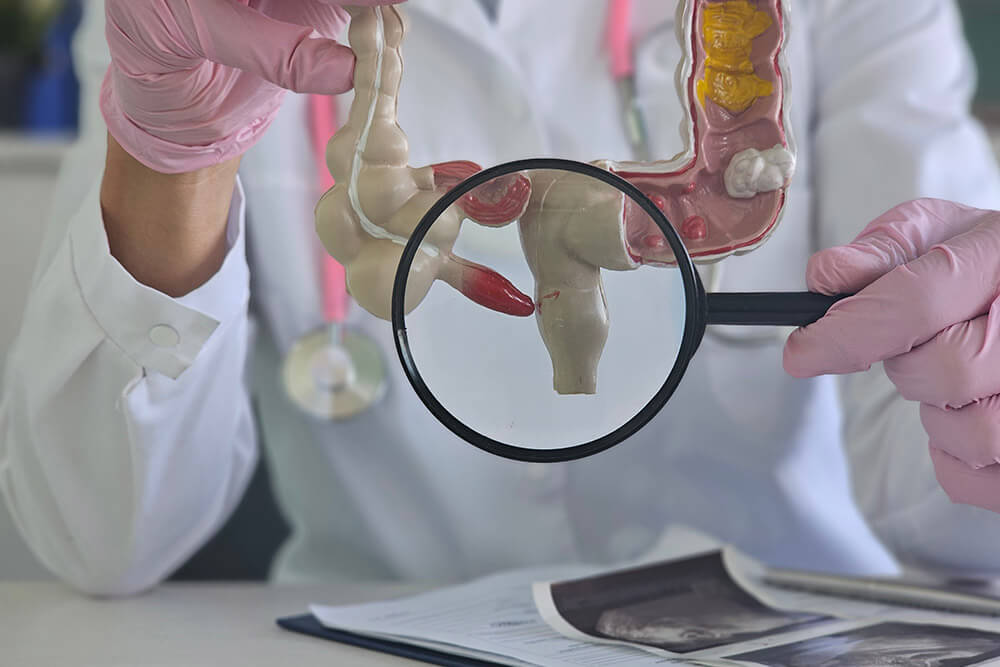Expert Treatment for Early Satiety by Dr. Bharat Pothuri
Dr. Pothuri uses a step-by-step approach:
Medical History and Exam
He reviews your eating habits, symptom onset, weight changes, history of gastrointestinal surgeries, diabetes control, smoking and alcohol use, and performs a focused abdominal exam to check for tenderness, bloating, or palpable masses.
Blood Tests
We check for anemia, infection, inflammation markers, metabolic disorders (including thyroid function), and nutritional deficiencies to rule out systemic causes of early satiety and epigastric discomfort.
Imaging Studies
- Upper endoscopy (EGD) to inspect the esophagus, stomach lining, and duodenum for ulcers, gastritis, tumors, or structural abnormalities.
- Abdominal ultrasound or CT scan to identify masses, organ enlargement, or external compression of the stomach.
- Gastric emptying study to measure how quickly a radio-labeled meal leaves the stomach, assessing for gastroparesis.
Advanced Testing (if needed)
In complex cases, gastric manometry or wireless motility capsule testing may be used to evaluate stomach contractility. Rarely, diagnostic laparoscopy is performed to identify adhesions or external sources of compression.

Frequently Asked Questions
What causes early satiety?
Slow gastric emptying (gastroparesis), stomach ulcers or gastritis, tumors pressing on the stomach, nerve damage (often from diabetes), and prior stomach or esophageal surgery can all lead to early satiety.
Can early satiety be cured?
Many patients experience significant improvement with a combination of dietary adjustments, prokinetic medications, acid blockers, and, if needed, minimally invasive procedures tailored by Dr. Pothuri.
Is early satiety serious?
Yes. If left untreated, early satiety can lead to poor nutrition, unintended weight loss, and decreased quality of life. Early diagnosis and management help prevent complications.
When should I see a doctor about early satiety?
If you consistently feel full after just a few bites, notice unexplained weight loss, or have persistent nausea and discomfort, schedule an evaluation to identify the cause and begin treatment.
Can diabetes cause early satiety?
Yes. Chronic high blood sugar can damage the vagus nerve, which controls stomach emptying, resulting in delayed digestion and early fullness.
What is recovery like after gastric electrical stimulation (GES)?
Most patients go home the same or next day. You may start to notice relief from symptoms within a few weeks as the device helps regulate stomach contractions.
Are diet changes enough to manage early satiety?
In mild cases, small, frequent meals of soft, easy-to-digest foods and mindful eating may suffice. If symptoms persist, Dr. Pothuri may add medications or recommend endoscopic procedures for optimal relief.












